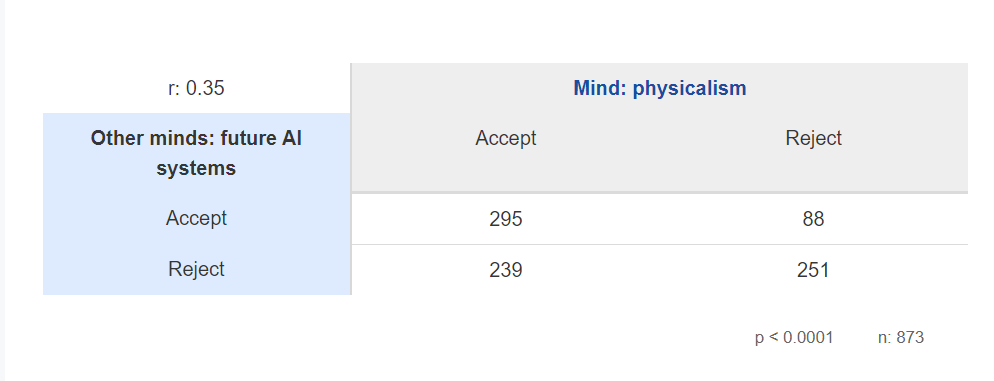It is perplexing, isn't it. I've encountered it on here, eg in the comments to this: Can minds be uploaded in computers? which is also an answer relevant to this topic, about the challenges of simulating embodied and extended cognition and how even quite a long horizon of AGI might not be able to simulate minds much like our own.
My sense is that physicalists who full-stop reject synthetic sentiences, or artificial general intelligence, object to it in two types of ways: structure, and process.
Roger Penrose is an example of a physicalist rejecting AGI being possible on Turing Machines, which he covers in The Emperor's New Mind. He thinks Godel Incompleteness means something fundamentally different is required, and looks to a process of 'orchestrated objective reduction' as concentrating information. That may be a quantum process, but there are researchers working on it being a classical process.
Penrose and others who object to AGI in process terms, whether quantum or not, seem to be missing the fundamental universality of Turing Machines, including quantum ones. Maybe an exception, is Deutsch & Marletto's development of Universal Constructors, which originated with VonNeumann's extension of Universal Turing Machines to counterfactuals, which allows computational intensity and the Halting Problem to be dealt with in very natural ways.
The summary of the structure arguments seems to be, we don't yet know some special quality about how human brains function. Rather than it being impossible to simulate in principle.
I would call raising the issue of qualia, an example of a process objection. Something about how a specific mind in a particular body, leads to qualities of experience related not only to present circumstances, but to the accrual of them in a way that cannot be abstracted or separated from the history of having been that individual.
Chalmers Fading and Dancing Qualia thought experiments take aim at this objection, in principle. A lot of ink gets spilled over qualia, for few clear words though. It seems there is a culture-gap issue between those from a computation & information theory background, and professional philosophers, that tends undermine productive discussion. There are so many unknowns, those two broad tribes can retreat into their silos if they want. I like people like Anil Seth, who take a middle path, of acknowledging the scale and uncertainties of the challenge, but also that we can genuinely make headway in deepening what we know.
For me a deeper process objection, is how animal minds seem to need this tightrope between positive and negative experiences, and that going too far either way leads yo stagnation, or suicide. Species have evolved to manage. And individuals have carers and community to help them manage the tensions, as their capacities increase. Eg boredom is very unpleasant for children, while they are in peak learning years. It seems a substantial challenge might be involved in cultivating a synthetic intelligence, perhaps requiring some kind of ecology, and interacting evolutionary algorithms. Crucially though, any progress on computer minds can be saved and copied, being substrate-independent.
I would look to the sense-gates model of consciousness found in Buddhist thought, to understand minds as arising through interaction, rather than simply being built on a plan. Our biology is full of cases of stem cells forming the correct tissue type in response to stimuli, rather than as directed by DNA. Our neural tissues ruthlessly prune unused pathways, and adapt pathways to deal with stimuli.
It's surprising to see a figure as high as 45% of this group of physicalists rejecting conscious AGI. I guess maybe the qualia objections are the most common, but as per Chalmers it's hard to see how anyone can expect that to be a fundamental problem.

